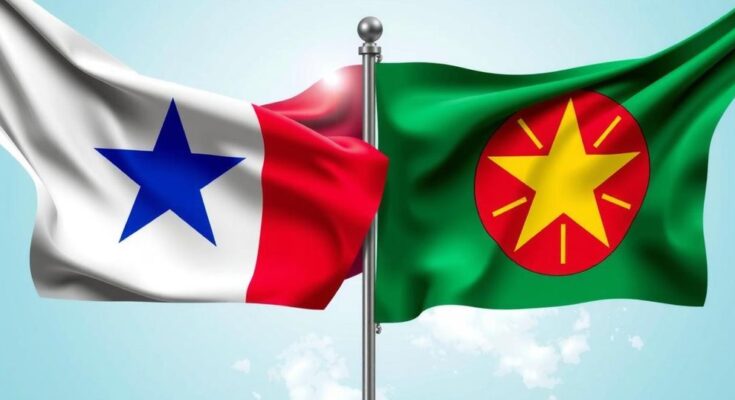Somalia and Ethiopia have restored full diplomatic relations, concluding a year-long rift caused by Ethiopia’s controversial agreement with Somaliland. This move, heralded during President Hassan Sheikh Mohamud’s visit to Ethiopia, aims to enhance bilateral trade and security. However, uncertainties about Ethiopia’s maritime access and regional tensions persist, particularly involving Egypt and Eritrea, which complicate the geopolitical landscape.
On January 11, Somalia and Ethiopia announced the restoration of full diplomatic relations, effectively ending a year-long impasse that had exacerbated instability in the Horn of Africa. This agreement was reached during Somali President Hassan Sheikh Mohamud’s visit to Ethiopia, where he and Ethiopian Prime Minister Abiy Ahmed expressed intentions to enhance their diplomatic engagements. This move follows a previous rift triggered by Ethiopia’s controversial agreement with Somaliland, which Somalia viewed as a challenge to its sovereignty.
The deterioration of relations began when Ethiopia entered into a suspected agreement recognizing Somaliland’s independence in exchange for access to a Red Sea port and a military base. In response, Somalia expelled Ethiopia’s ambassador and severed ties. However, a peace deal brokered by Turkey, signed in the preceding month, facilitated this recent reconciliation. In their joint statement, both leaders portrayed their renewed relations as a reflection of their “spirit of friendship and solidarity.”
During President Mohamud’s visit, discussions also encompassed trade and security cooperation, particularly in combating extremist groups posing threats in the region. Despite the positive developments, significant uncertainties remain, particularly regarding Ethiopia’s potential maritime access and the fate of its agreement with Somaliland.
Concurrent regional tensions were highlighted prior to the Somali President’s visit, characterized by a meeting in Cairo among Somalia’s Foreign Minister, Egyptian officials, and Eritrean counterparts. Egyptian Foreign Minister Badr Abdelatty emphasized the sovereignty of the Red Sea, asserting that it is imperative for nations bordering the sea to determine its security independently, rejecting any foreign presence. Following a regional alliance created in October, Egypt and Eritrea have positioned themselves as counterweights to Ethiopia’s regional aspirations, which include military involvement against Somali insurgents.
The recent restoration of diplomatic relations between Somalia and Ethiopia marks a significant turning point in the Horn of Africa’s geopolitics. The historical context reveals that the rift first emerged over Ethiopia’s perceived endorsement of Somaliland’s independence, raising questions about authority and governance in Somalia. This disagreement was not merely superficial, as it affected broader regional stability, prompting shifts in alliances and security policies. Turkey’s mediation was instrumental in reconciling the two nations, highlighting the importance of international diplomatic efforts in resolving intraregional conflicts. Additionally, the ongoing threats posed by extremist groups in the Horn of Africa, coupled with regional military dynamics, necessitate collaboration between these countries. Egyptian and Eritrean responses to Ethiopia’s regional actions demonstrate persistent tensions that may influence future diplomatic endeavors and regional security strategies.
In conclusion, the restoration of diplomatic ties between Somalia and Ethiopia represents a hopeful development in a historically contentious relationship that has implications for the entire Horn of Africa. While the peace deal mediated by Turkey lays a foundation for cooperation, significant challenges remain, including unresolved issues about maritime access for Ethiopia and the status of Somaliland. The broader regional dynamics, underscored by Egypt’s positioning against Ethiopia, suggest that stability in the Horn of Africa will require ongoing diplomacy and collaboration among all stakeholders involved.
Original Source: www.firstpost.com




